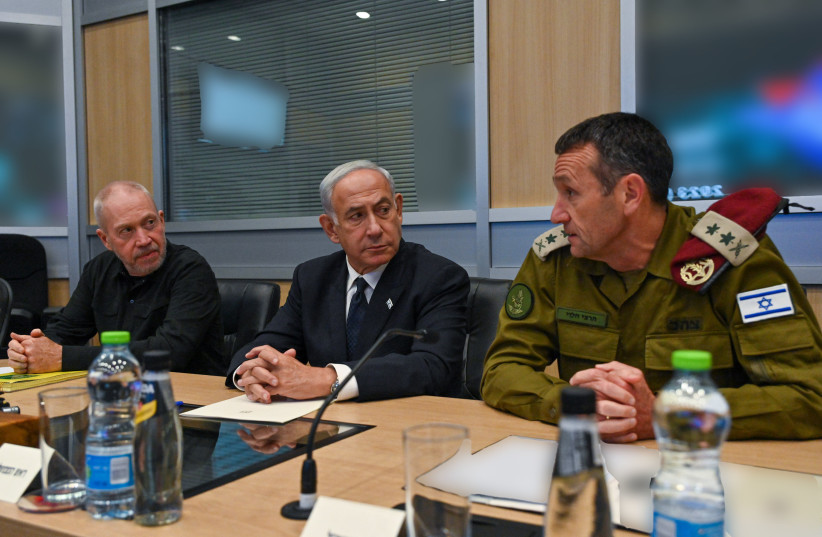PM Netanyahu refused to meet IDF chief before reasonableness vote
Prime Minister Benjamin Netanyahu refused to meet with IDF chief-of-staff Lt. Gen. Herzi Halevi on Monday prior to the Knesset vote repealing the judiciary’s reasonableness standard, despite a request by the IDF.
A source with knowledge of the matter said that the Netanyahu narrative was that the meeting was not feasible simply for technical scheduling reasons.
The IDF would not publicly comment on the issue. However, earlier Monday, Netanyahu and Defense Minister Yoav Gallant announced that they had asked the IDF to brief the cabinet on the evolving status of the readiness of the IDF in the shadow of the debate over the government’s repeal of the reasonableness standard.
Later on Monday evening, the IDF issued a statement that Halevi did meet with Netanyahu hours after the vote.
The IDF said that Halevi presented Netanyahu with the latest statistics and trends regarding reservists quitting and the military’s readiness.
 Prime Minister Benjamin Netanyahu seen with IDF Chief of Staff Herzi Halevi and Defense Minister Yoav Gallant on Wednesday, May 31, 2023 (credit: KOBI GIDEON/GPO)
Prime Minister Benjamin Netanyahu seen with IDF Chief of Staff Herzi Halevi and Defense Minister Yoav Gallant on Wednesday, May 31, 2023 (credit: KOBI GIDEON/GPO)Halevi said that political officials must cease to attack the defense establishment because such attacks were undermining its readiness and cohesion.
Despite all of the current challenges, Halevi said that the IDF would do its utmost to maintain its readiness and cohesion in order to continue to defend the country.
Netanyahu’s initial refusal to meet with Halevi came after opposition leader Yair Lapid and National Unity Party leader and former defense minister and IDF chief Benny Gantz each received briefings from Shin Bet Chief Ronen Bar and Halevi respectively.
Some speculated that Netanyahu avoided the Halevi briefing so as not to be pressured into postponing the vote by a harrowing prediction about the impact of the vote on IDF readiness.
The timing of the briefings and the intentional public announcements had suggested that major moves might be on the horizon regarding the government’s policy, in no small part due to concerns about harm to the IDF’s readiness.
Yet, given that the vote passed, all of the last-minute briefings could have simply been ensuring that all key parties on the relevant political issues would have a balanced nonpolitical clear understanding of where the IDF stood.
Service people from across the defense system refuse to serve
Over 10,000 IDF reservists, including 1,194 from the air force and 1,855 from IDF intelligence, had announced they were quitting their reserve roles to protest government policy, and even more were expected to quit now the law has passed.
The NGO Brothers in Arms said that the number of reservists quitting was expected to balloon.
Despite the rising number of reservists who are quitting, former IDF chiefs Shaul Mofaz, Gabi Ashkenazi as well as Gadi Eisenkot and Benny Gantz, now of the National Unity Party, all oppose both government policy and the idea of reservists quitting.
Meanwhile, on Monday there were reports that a critical mass of Mossad officials demanded a dialogue with Mossad Director David Barnea over government policy.
All of the six living former Mossad chiefs had either explicitly opposed the reasonableness standard repeal or called for a pause to arrive at a compromise.
Five out of six had blamed Netanyahu for tearing apart the nation, while Yossi Cohen had said the vote must be paused to give more time for dialogue.





Comments are closed.